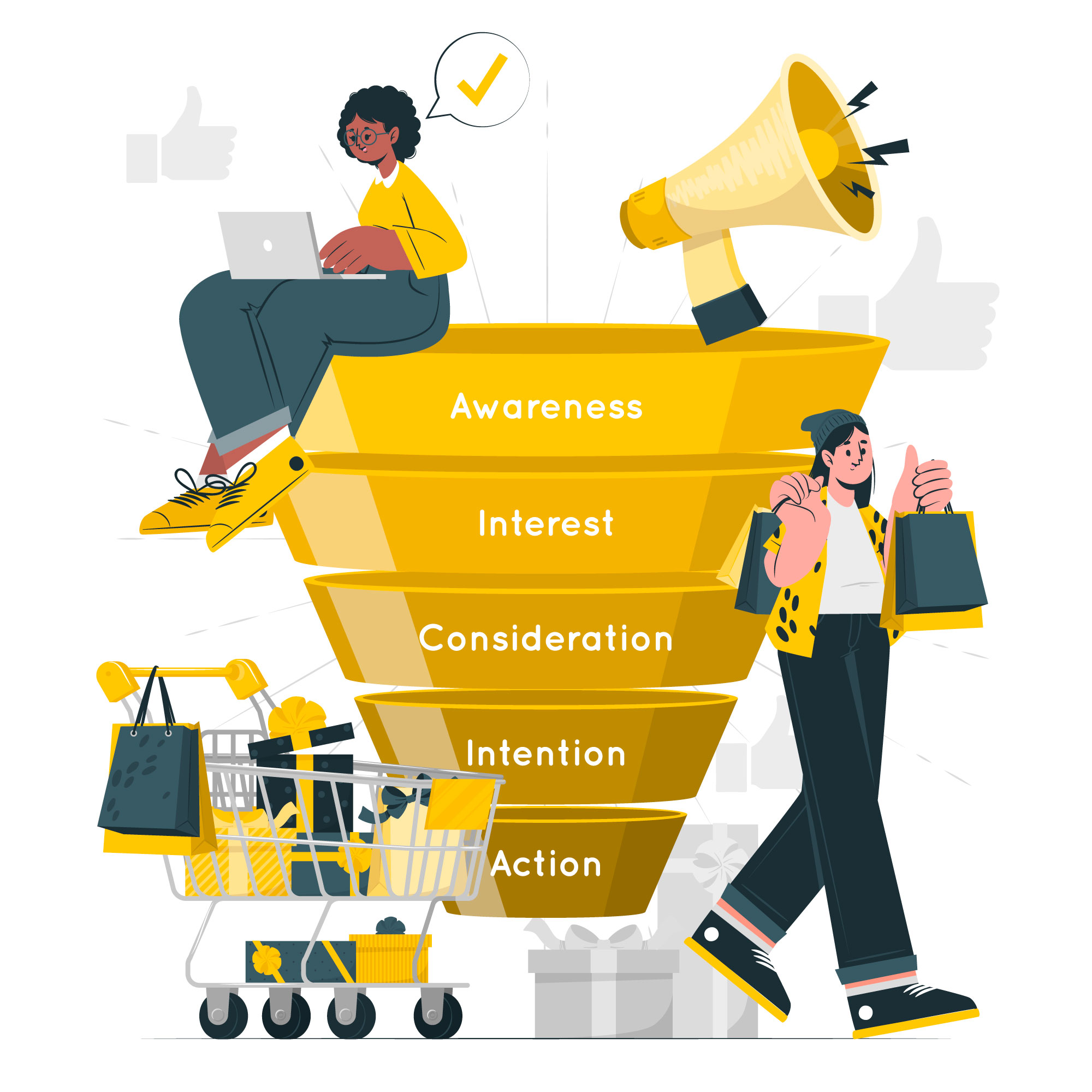In the fast-paced digital landscape, creating a marketing funnel that converts is crucial for businesses looking to thrive. A well-designed digital marketing funnel guides potential customers through their journey—from awareness to conversion—while establishing a strong digital brand design identity. In this post, we will explore how to build an effective digital marketing funnel and highlight the importance of digital brand design identity at every stage.
What is a Digital Marketing Funnel?
A digital marketing funnel is a structured path that guides potential customers through different stages of their buying journey. Typically, it consists of the following stages:
Awareness
Interest
Consideration
Intent
Purchase
Loyalty
Each stage requires specific strategies to engage users effectively and move them closer to conversion.
The Importance of Digital Brand Design Identity
Digital brand design identity encompasses the visual elements that represent your brand online—logos, color schemes, typography, and imagery. A strong digital brand design identity not only makes your brand recognizable but also plays a vital role in each stage of the marketing funnel. Let’s examine how to build an effective funnel while integrating digital brand design identity into each phase.
1. Awareness: Making a Lasting First Impression
Strategies:
Content Marketing: Create engaging blog posts, infographics, and videos that provide value to your audience.
Social Media Marketing: Leverage platforms where your target audience is active. Use eye-catching visuals that reflect your digital brand design identity.
Role of Digital Brand Design Identity: Your logo and color palette should be prominent in all content and social media posts. Consistent use of your digital brand design identity helps create a memorable first impression, increasing the likelihood that users will remember your brand as they move further down the funnel.
2. Interest: Engaging Your Audience
Strategies:
Role of Digital Brand Design Identity: Ensure that your lead magnets and email campaigns reflect your digital brand design identity. Use consistent typography and imagery that align with your brand’s personality. This reinforces recognition and helps maintain interest among potential customers.
3. Consideration: Building Trust and Credibility
Strategies:
Role of Digital Brand Design Identity: A professional and cohesive digital brand design identity instills trust. Well-designed case studies and testimonials, featuring your brand colors and typography, make the content more appealing and relatable. Trust is crucial in this stage, and a polished design can significantly impact customer perception.
4. Intent: Encouraging Action
Strategies:
Role of Digital Brand Design Identity: Your CTAs should stand out while remaining true to your digital brand design identity. Use contrasting colors that align with your brand palette to draw attention. Consistency in design across all touchpoints ensures users feel confident about their decision to engage with your brand.
5. Purchase: Streamlining the Conversion Process
Strategies:
Role of Digital Brand Design Identity: A seamless and aesthetically pleasing checkout experience enhances user satisfaction. Consistent branding throughout the purchase process—from the cart to confirmation emails—reinforces your digital brand design identity, making customers feel secure in their choice.
6. Loyalty: Turning Customers into Advocates
Strategies:
Role of Digital Brand Design Identity: Maintain your digital brand design identity in follow-up communications. A visually appealing thank-you page or loyalty program that aligns with your branding can enhance the overall customer experience. Satisfied customers are more likely to become advocates, sharing their positive experiences with others.
Measuring Funnel Effectiveness
To ensure your digital marketing funnel is converting effectively, it’s essential to track key performance indicators (KPIs) at each stage. Metrics such as conversion rates, click-through rates, and customer feedback can provide valuable insights into how well your funnel is performing.
A/B Testing
Consider conducting A/B tests on various design elements within your funnel, such as CTA colors, email layouts, and landing page designs. This approach allows you to see which designs resonate best with your audience and can significantly improve your conversion rates.
Conclusion
Building a digital marketing funnel that converts requires a strategic approach, with digital brand design identity playing a crucial role throughout the process. By ensuring consistency and visual appeal at every stage—from awareness to loyalty—you can create a cohesive customer experience that fosters trust and drives conversions.
Investing in a strong digital brand design identity not only enhances customer perception but also cultivates loyalty, setting your brand up for long-term success. As you refine your marketing funnel, remember that every element contributes to the story your brand tells—make it a compelling one!


 CT DigiTal
CT DigiTal





